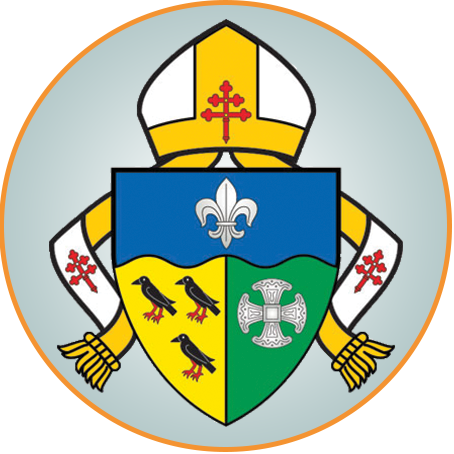
A 'synodal' process is taking place in the Catholic Church from October 2021 that culminates in the final Synod Gathering of Bishops in Rome in October 2024. The overall theme is "For a Synodal Church: Communion, Participation, Mission".
A synodal Church, in announcing the Gospel, ‘journeys together.’ How is this ‘journeying together’ happening today in your local Church? What steps does the Spirit invite us to take in order to grow in our ‘journeying together’?
The Timetable for Southwark 2024
Beginning of 2024
The local church has been invited to carry out a further consultation post the first meeting of the Synod in October 2023, by deepening aspects of the Synthesis Report.
15 May 2024
Spring Plenary of the Bishop’s Conference in April followed by the submission of results to the Synod Office in Rome.
From 8 February to 5 March 2024
Three meetings (online) will be held to which parish synod delegates, parish leads and clergy are invited to contribute what has been heard in response to the Synthesis from the first session.
October 2024
Report to the Synodal Assembly
17 March 2024
Submission of results to our Bishop’s Conference
Resources for the Universal Phase: Towards the 2024 Assembly
Conversation in the Spirit. A short video of a document explaining the different stages of a spiritual conversation.
Resources for the Local Listening Phase
Walking the Synodal Way
Prayer Sessions
Parish Feedback Sheet
Questions for the Synod
Prayer Card
We stand before You, Holy Spirit as we gather together in Your name
Selecting Parish Delegates
Pastoral Letter 16/17 October
Facilitating ‘Spiritual Conversations’
Questions for Children
Offered by St Simon Stock parish in Walderslade. With thanks.
The Timetable for Southwark 2022
Sunday 17 October
Opening Mass at St George’s Cathedral (livestreamed) to launch the Synodal process in the diocese with a launch in every parish. A Pastoral Letter and prayer cards were provided. At 4pm, an online session of Lectio Divina introduced the process for parish delegates.
18 February 2022
Deadline for online submissions via the diocesan website which contributed to the diocesan ‘synthetic’ document (published above).
29 June 2022
Event to mark the conclusion of the diocesan phase.
From 18 October to 21 January 2022
Local listening phase (i.e. parishes, and including schools where possible) which comprised online or in-person gatherings as the organisers see fit. Resources for these meetings, including the questions for discussion can be found lower down this page (Synod Resources 3, 4 & 5).
Early March 2022
A representative group of clergy, religious and lay people met to prayerfully distil the contents of the local meetings and the postal and online submissions to the Synod process into a ‘synthetic’ document.
From 9 February to 16 February 2022
Three meetings (online) were held, one for each area of the diocese, to which parish delegates and clergy were invited to contribute what has been heard in the local listening phase.
17 March 2022
A further meeting was convened to share the draft ‘synthetic’ document with participants in the process; inaccuracies in the document allowed for amendment in advance of its submission to the Bishops’ Conference for the next stage of the Synod process.
Frequently Asked Questions
by Canon Christopher Thomas, General Secretary of the Bishops’ Conference of England and Wales
Can we talk about any topic?
Pope Francis says ‘what is under discussion at synodal gatherings are not the traditional truths of Christian doctrine. The Synod is concerned mainly with how teaching can be lived and applied in the changing contexts of our time.’
Therefore all topics can be raised but it is important to realise that not all will form part of the ongoing discussion.
What does Synodality mean?
Synodality comes from a Greek word meaning the ‘walking together’ (syn-) on a ‘particular way’ (-hodos). The ‘particular way’ has been defined by the Synod of Bishops in its process for the Synod 2023. This can be seen in the infographic below.
Is the Synod just for Parishes?
No, it involves everyone. Schools, young people, hospital chaplaincies, university chaplaincies, prison chaplaincies, the religious and consecrated communities, the societies of apostolic life, those with a distinctive charism in the church all have a voice that speaks into the conversation. Catholic organisations and charities also have a role to play in this work.
Echoing the experience of the Second Vatican Council, Ecumenical and Interreligious engagement is also encouraged, and this is best facilitated at the local level. This is an important voice from outside the Church that offers an insight into the collaboration for the good of all.
Will this make the Church more democratic, like other churches?
The Synodal Process is not about a democratic debate. It is place of respectful mutual listening and experiencing the call of the Holy Spirit to move in new ways. Again the Pope is clear on this:
‘Another temptation that so often confuses people is treating the Synod as a kind of parliament underpinned by a “political battle” in which in order to govern one side must defeat the other…this goes against the spirit of the synod as a protected space of community discernment.’
What it will do is embed at all levels of the Church a new way of listening and hearing, of discernment and action which remains faithful to the truths received but expresses them in the context of a particular time.
If the process is already defined, how do we ‘walk together?’
Every member of the Church has the right to speak, and the obligation to allow those charged with the work of discernment the freedom to do so. Pope Francis in his book Let us Dream says ‘we need a respectful, mutual listening, free of ideology and predetermined agendas’.
This is at the heart of the process. Each diocese will form its own means of running this listening process so that it reaches as broad a scope of people as possible.
How does this discernment take place?
The whole Synodal Process is a prayerful process, rooted in the encounter with Jesus in the prayerful reading of the Sacred Scriptures and through the liturgical life of the Church and inspired by an openness to the movement of the Holy Spirit. Listening to each other is very important. Pope Francis says of the Synod of Bishops gathering itself: ‘we listen, we discuss in groups but above all we pay attention to what the Spirit has to say to us.’
This discernment is not an activity done in isolation. Mutual listening and reflection are vital, as what is proposed grows from the unity and conviction that comes from the lived practice of faith within the community.
The process of spiritual discernment is incumbent on everyone’s part; truly being open to the Spirit and seeing where the local Church is being led in its own context, with the bishops listening carefully to the views of the faithful, and the faithful respecting the authentic role of the bishop as one who governs the local Church and promotes communion.
Discernment is always orientated towards the mission of the universal Church which continually moves towards Christ, the Way, the Truth and the Life who calls his people into a unity of purpose.
A Summary Video of the Process in simple terms (Rahai)
Online Submissions to the Diocesan Synod Process
Following the conclusion of the local listening phase (18 February 2022), any online and postal submissions received will not feature in the diocesan Synod synthesis (now published and accessed via the image at the top of this page). We will, however, continue to accept submissions beyond this date and up to the summer to help plan our next steps as a diocese.



















